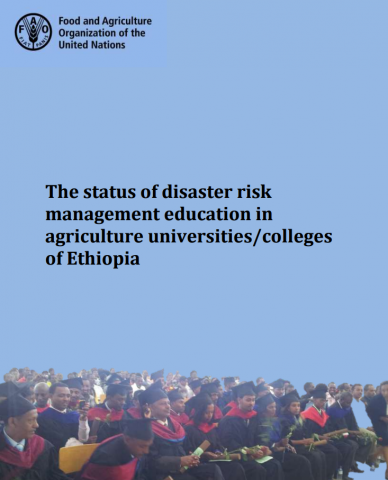The status of Disaster Risk Management Education in agriculture universities/colleges of Ethiopia


This study assessed the status of disaster risk management (DRM) education in selected Ethiopian universities, and on how they achieve their objectives strategically through undertaking inter-disciplinary policy and applied DRR research; and creating a network of knowledge management institutions linked with climate change, environment management and sustainable development. The study jointly promoted and facilitated the mainstreaming of broader ex-ante disaster risk reduction into national and sector programs together with Ethiopian universities.
Key findings of the study include:
– The percentage of courses related to DRM offered in Agriculture universities/colleges ranges from 17% to 25%.
– As DRM is a new and emerging field of study, the course descriptions of agriculture program curricula’s still lacks inclusion of basic DRM concepts and principles. These percentages indicated the need for curriculum revision and provision of basic DRM training for professionals who teach in the mainstream agriculture programs.
– In terms of DRM related research outputs, 32.35%, 11.11%, 26.85%, and 33.33% of research conducted and completed in 2012/13 by graduate students and staff members of Bahir Dar, Jigjiga, Jimma, and Mekelle universities are related to DRM and other environmental concerns.
– There still remain limitations in publishing and communicating research results.
– In order to facilitate exchange of information and research results between universities and other stakeholders (through documentation and knowledge management), through already existed opportunities such as International Day for Disaster Reduction and DRM ATF, strengthening linkage between agriculture research institutes, AU DRM research Centre, FAO and DRMFSS is very critical.
FAO, 2016
Online Report
http://www.fao.org/3/a-i5484e.pdf
